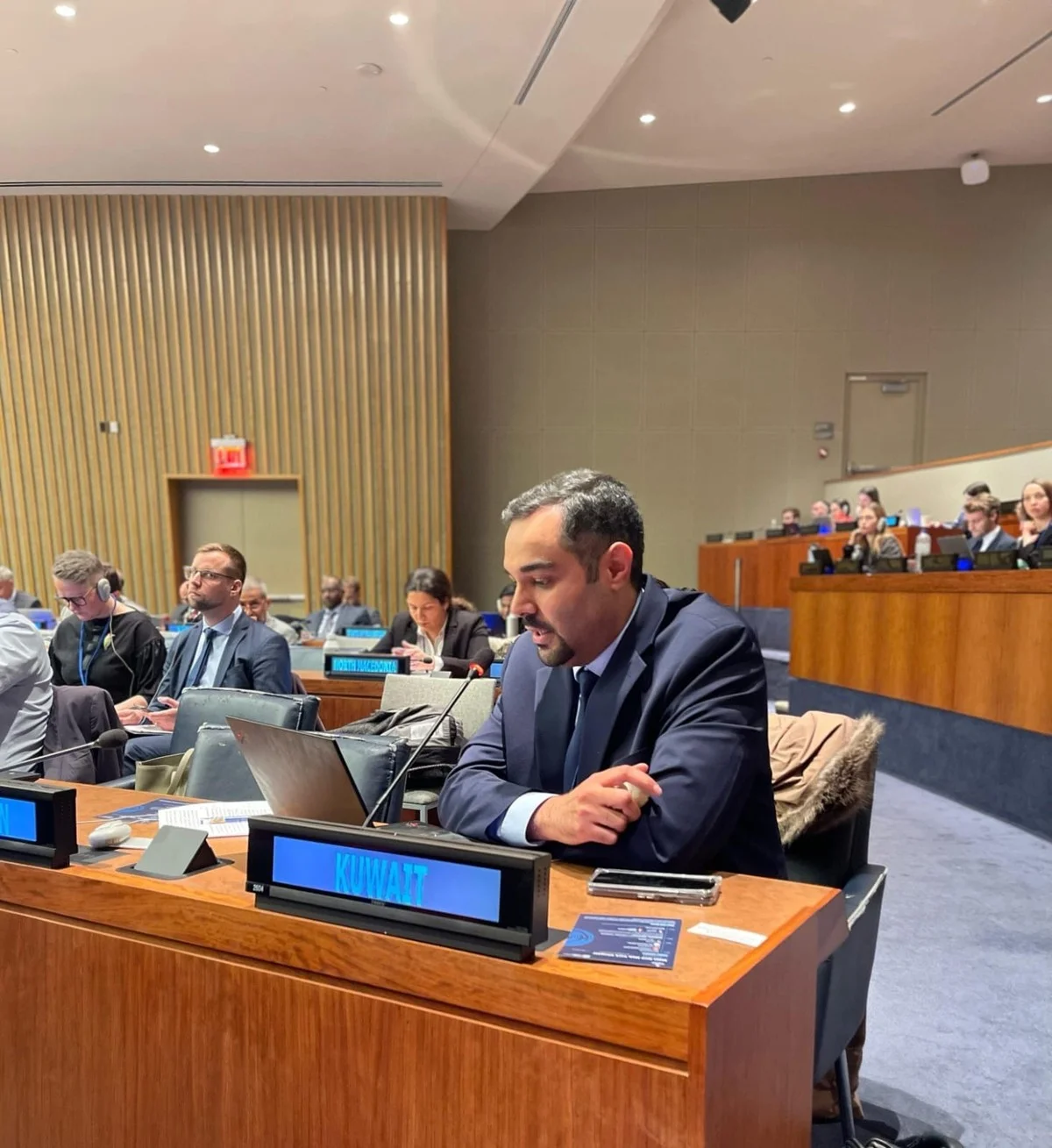22/02/2025
22/02/2025

NEW YORK, Feb 22: The Arab Group at the United Nations has commended the State of Kuwait’s proposal submitted during the ninth session of the Open-Ended Working Group on the Safe Use of Information and Communication Technologies (OWICT), which focused on building confidence and capacity in cybersecurity. The praise was conveyed in a speech delivered by Abdullah Al-Qadeeri, Director of the Information and Communication Technology Department at Kuwait’s Ministry of Foreign Affairs, on behalf of the Arab Group during the 10th session of the Open-Ended Working Group.
The Arab Group described Kuwait’s proposal, which suggests a platform for measuring the implementation of rules and standards for responsible state behavior in the use of information technology, as a "qualitative addition" to enhancing international cooperation. They emphasized that this initiative should be built upon to support the successful implementation of agreed standards.
Al-Qadeeri reiterated the group's strong support for efforts to strengthen cybersecurity and the importance of international cooperation, capacity building, and the unimpeded development of initiatives aimed at helping developing countries implement the existing standards framework for state behavior in cyberspace.
He also referred to the establishment of the Ministerial Council for Cybersecurity, which is affiliated with the League of Arab States. Al-Qadeeri explained that steps are being taken to fully activate this regional platform, which will serve as a specialized forum for cybersecurity discussions. He expressed the Arab Group's hope to transition smoothly to a permanent mechanism for regular institutional dialogue by July, noting that past meetings under the Arab Group have laid a crucial foundation for discussing cybersecurity issues.
In addressing the challenges of the digital age, Al-Qadeeri cautioned that the increasing reliance on digital technologies and cyber systems necessitates enhanced international cooperation. He emphasized the need to support developing countries in building their cybersecurity capacities and addressing threats such as attacks on critical infrastructure, disinformation campaigns, and cyber-ransom crimes.
Al-Qadeeri reiterated Kuwait’s full support for the establishment of a global portal dedicated to fostering cooperation in information and communication technology security and capacity building, led by member states under the United Nations. He stressed the importance of integrating the "Rules and Standards Platform" into this global portal, which would provide a direct mechanism for member states to self-monitor and voluntarily report on their implementation of the existing normative framework for responsible state behavior in cyberspace.
He urged the continued holding of consultations and dialogues at bilateral, regional, and multilateral levels regarding the applicability of international law to cybersecurity. On behalf of the Arab Group, Al-Qadeeri called for further strengthening of confidence-building measures and supporting cyber capacity building for developing countries through training fellowship programs and the establishment of an international funding mechanism.
Finally, he underscored the importance of creating a permanent cybersecurity mechanism under the United Nations based on the principle of consensus, aimed at enhancing global digital security.


